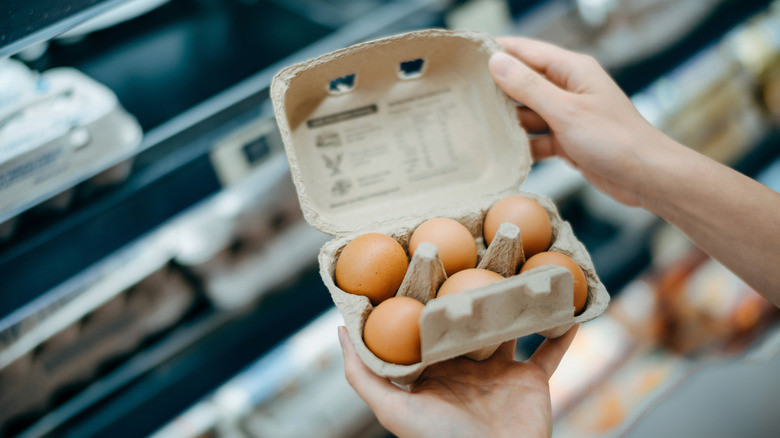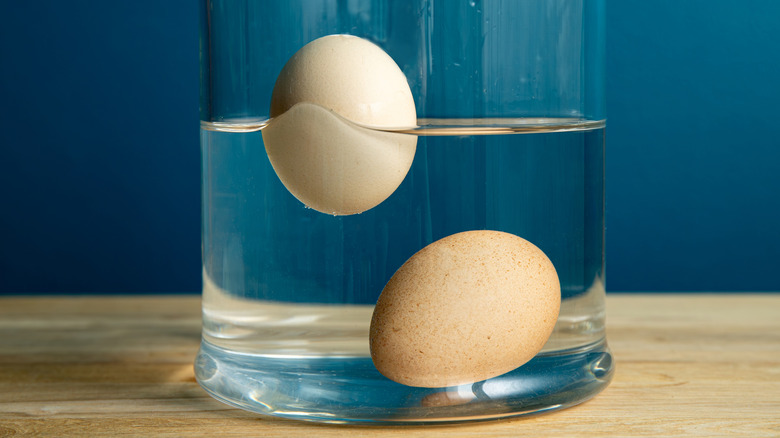Are Eggs Good To Eat Past The Date On The Carton?
Egg prices are prone to surges, thanks to multiple factors including flock health risks, transportation costs, and good ol' inflation. When a dozen-count costs more than five bucks at Aldi (which already avoids brand-name products as part of its quest to save you money) it can be tempting to make a carton stretch as far as possible. To that end, you might have eyeballed the sell-by date on your eggs and wondered if you could safely eat them days (or even weeks) later.
According to the USDA, eggs should be safe to consume for three to five weeks after you put them in your refrigerator, regardless of the sell-by or even expiration date. And, yes, unlike Europeans, Americans have to store eggs in the fridge due to the commercial egg sanitation process. To store your eggs for the longest-lasting quality, make sure that they are situated toward the back of your fridge, where they will see the least fluctuation in temperature, and store them in their original packaging. Still feeling skittish about consuming an animal product past that all-important expiration date? You will be relieved to know that there are some tests you can perform to make sure your eggs are still safe to eat.
Ways to check that your eggs are still fresh
The most common trick to determine the freshness of an egg is called the "float test." Take each egg you want to use, and dunk them individually in a cup of water. An egg that sinks to the bottom is still good, while an egg that floats may not be — more on that in a moment. An egg that sinks to the bottom but stands on end is nearing the end of its lifespan. Notably, eggs that have been submerged must be used right away, because dipping them in water can cause bacteria to migrate through the shell.
Let's say that the float test was inconclusive. Go ahead and crack the egg (into a bowl and not into other food, just in case they are no good), then give it a sniff. The nose knows, as the saying goes. If anything smells off, play it safe and discard the egg.
Still not quite convinced? Take a hard look at the yolk. A "good" yolk will have a uniform, matte color that can range from a pale yellow to a vibrant orange. An iridescent cast to the yolk or any unusual discoloration is the equivalent of the Monopoly space that says "do not pass GO." If your eggs have cleared all the tests, you should feel safe to go ahead and cook them up. Good news: hard-boiled eggs last longer in the fridge than you might think.

